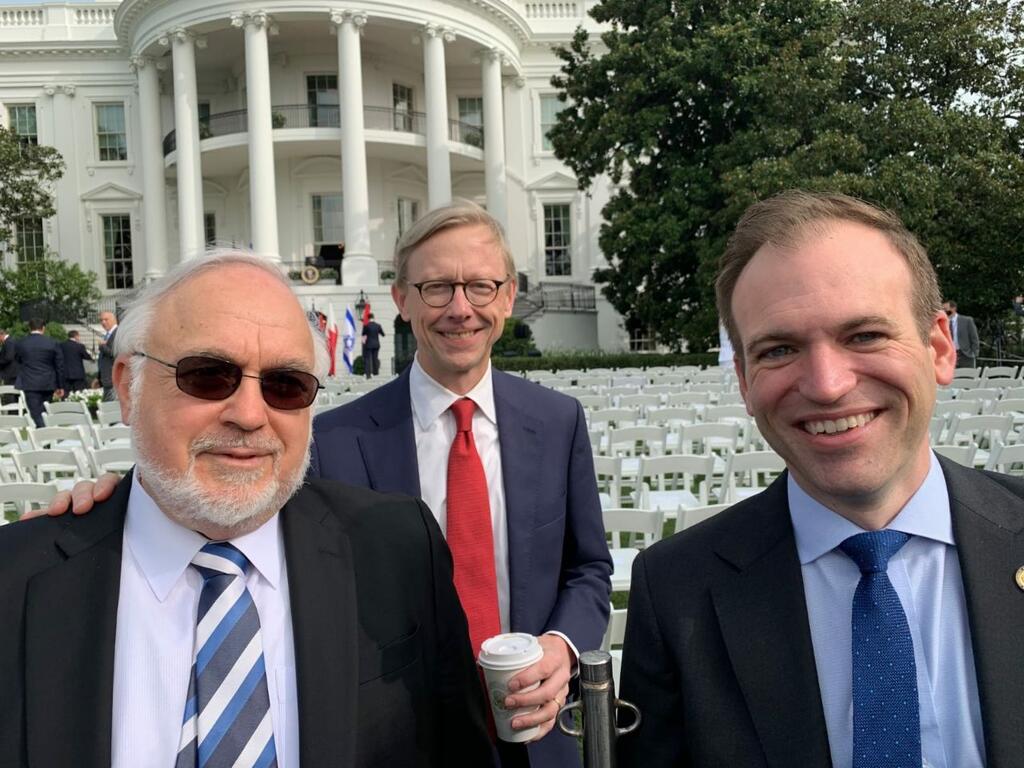Getting your Trinity Audio player ready...
In an ironic twist, a U.S. delegation tasked with advancing religious freedom cut short their visit to Saudi Arabia after its chairperson, Rabbi Abraham Cooper, was asked to remove his religious head covering while out in public.
Now, Rabbi Cooper is sharing his side of the story with i24NEWS, saying it has "nothing to do with [the war in] Gaza" and is a clear sign of how far the kingdom has to go to achieve the goals of its Vision 2030.
"As an organization mandated by the U.S. Congress, we look at 28 different countries and the issue of human rights within the lens of religious freedom. It obviously includes China, Russia, Iran, Cuba - and Saudi Arabia," explained Rabbi Cooper about the purpose of his visit to i24NEWS.
Religious freedom activist Rabbi Abraham Cooper
(I24news)
The report by the United States Commission on International Religious Freedom (USCIRF) may then influence Washington's decision on whether or not a particular country complies or should be sanctioned for the level of religious freedoms.
"On the first full day we were there, we were taken to this lovely area in Riyadh that is a UNESCO site that in some ways reminds the Old City of Jerusalem, and tells the history of the city."
"A gentleman said: 'We have laws in Saudi Arabia that we don't allow in public any display of another religion's symbols. What you do in private is certainly your business, but we ask you to remove your kippah," recalled Rabbi Cooper.
More stories:
The commission's chair compared it to asking a woman of Muslim faith to remove her hijab and added: "50 years ago, I spent a month in the Soviet Union where it was illegal to wear a kippah. I didn't take if off back then, and I'm certainly not taking it off now."
Rabbi Cooper says he told the official: "I am a U.S. citizen and a member of a government delegation, are you sure you want me to remove the kippah?" The man went to check, but after ten minutes came back and asked him to leave.
The site's workers escorted the entire delegation back to the van, which included the vice chair who is an African American pastor, as well as the executive director and other staff members. The commission's members decided to leave Saudi Arabia after the incident. Rabbi Cooper was contacted by the Saudi ambassador to the U.S., who said the delegation were welcome back to the kingdom and called the incident "unfortunate." Rabbi Cooper said he does intend to return and complete the meetings that were planned.
"I am absolutely convinced that this doesn't have to do with Gaza. It has everything to do with major changes [in the society]. Walking away from Wahhabism - you can't just snap your fingers."
Rabbi told i24NEWS that in his opinion, the decision did not come from the top — quite the contrary.
"Our job is to normalize that if someone walks down the street in an Arab capital wearing a kippah - nobody cares. We're not there yet, but I'm hopeful we will be," concluded Rabbi Cooper.






